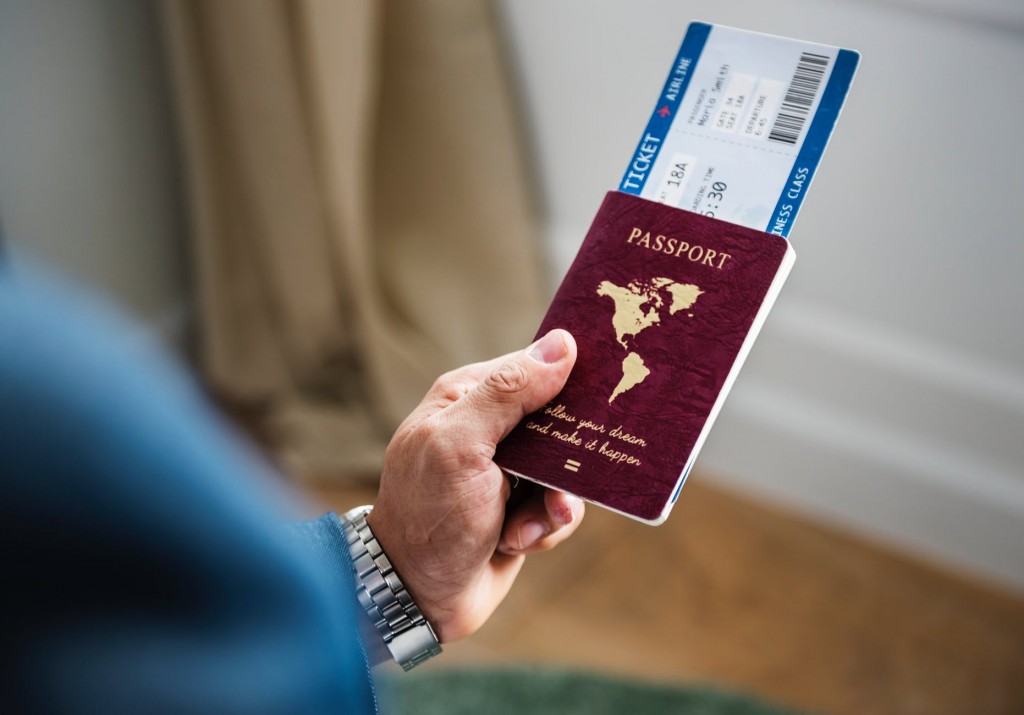Business Travel Planning and Travel Policies
Company culture doesn’t stop at the office door. The way employees travel says a lot about their organization’s values. Do they fly business class or coach? Stay at a 3 star or 5 star? Maybe the answer depends on the seniority of the employee in question. Or maybe it doesn’t: though some companies tie travel allowances to job title, others treat everyone equally. There’s no single style of travel management that would be right for every organization. But no matter whether a company’s travel policy is generous or thrifty, informal or strictly enforced, it has a real effect on the employee experience.
More than 80 percent of all employee spending is related to business travel. Costs adds up, one trip at a time. Travel and entertainment (T&E) is typically the second or third largest controllable expense category, behind payroll and rent. Despite virtual technologies, face-to-face meetings are indispensable and business travel is integral to every organization. Our online booking tool provides a perfect solution in three dimensions: employee satisfaction, cost reduction and process optimization.
>> Business Travel Planning System for Travel Agency : Connect with Sales
Employee satisfaction
For most business travelers, the support provided by the employer during the trip greatly influences the employer’s attractiveness. The functions that contribute to employee satisfaction are:
Simple operation and simple processes
User experience
Useful hints for the trip (weather, visas, safety, ground transportation etc.)
Hints on company rates and what these actually include
Poorly rated service providers are no longer listed for booking
Automatic services during the trip
Safety (respecting risk management)
Central hotline for questions or emergencies
Waiting list for preferred flights
Cost reduction
Cost reduction is travel is always possible as the prices always fluctuate. Here are some way’s cost reduction can be managed:
Contracts with service providers can be managed optimally daily (corporate contract management)
Easy-to-view, holistic price comparisons
Automatic management of results for compliance
Missed savings and their reasons displayed automatically
Unused ticket management
Lower transaction fees per booking
Increase in untouched bookings
Process optimization
Process optimization is where most indirect costs can be reduced. The potential for cost reduction is high for companies where employees travel a great deal. The process can be optimized through:
Worldwide tool with country-specific adaptations that can be managed and administered a centrally
Tailored process for travel management “end-to-end” or “door-to-door” and pre, during and post trip
Efficient booking through reduced search times
Simple approval process and travel cost settlement
Quicker process, thanks to integrated process and present data
Automatic services (automatic exchange, automatic max. number of employees on plane cap, someone file finishing)
Integration into existing systems (HR, accounting)
Illustration of company-specific workflows
All data is automatically considered in the booking process (e.g., frequent flyer cards)
No, redundant data retention
The importance of travel policies
It’s critical for a company to develop a method of influencing its employees travel spending. That’s where a travel policy comes into the picture. A company travel policy lays down ground rules that ensure employees’ trips are safe and cost-effective. Well-designed travel policies also take the guesswork out of trip planning by answering employees’ most common questions about the where, what, and when of travel:
Where
Where should employees go to book their trips? Are employees required to book using a corporate booking tool, such as Concur? Or, are they permitted to shop online and book on a site of their choice?
What
The basic objective of a travel policy is to define what types of flight and hotel purchases are considered in policy. Does your company have discounted rates with any preferred hotels or airlines and, if so, are employees required to use them?
Alternatively, can they choose a different option if it’s less expensive? Travel policies should also cover topics like business class vs. coach and recommended hotel star class. With the ever-expanding set of ancillary fees charged by hotels and airlines, it’s more necessary than ever for travel policies to say what expenses are permitted.
When
Since prices increase closer to the trip date, it’s common for companies to require employees to get special pre-approval for last-minute bookings. Highlighting advance booking requirements encourages employees to plan ahead.
Why travel policies create friction
A travel policy should create guidelines for employees to follow, not extra hoops for them to jump through. Tighter rules around travel can reduce instances of overspending, but they can also burden employees by forcing them to spend more time planning their trips and to settle for undesirable flights and hotels.
Between booking a trip and submitting expense reports, employees often find that their work-related travel entails a considerable amount of work in its own right. Asking employees to make sense of the fine print of a company travel policy only adds to their headaches. The truth is that cutting travel costs is never as simple as announcing a new spending cap. It’s notoriously difficult to enforce travel policies, since most managers are less than eager to censure an employee for non-compliant purchases (let alone deny the employee’s reimbursement request).
Normal price considerations don’t apply when the person going on a trip isn’t the same one paying. The fundamental problem is one of “other people’s money.” Employees have little incentive to choose low-cost flights, hotels, trains, and rental cars: they quite understandably prioritize factors such as comfort, convenience, or existing brand loyalty.
Corporate travel often takes on an adversarial dynamic, with companies attempting to push down on costs, and employees pushing right back.
>> Travel Planning System for Travel Agency : Connect with Sales
Travel management is about travelers
Controlling costs is a primary objective of travel management, but not the only one. The rules and procedures a company develops for travel should contribute to employee productivity and well-being. In practice, this means: Making trip planning quick and convenient, either by providing booking support (e.g. a corporate travel agent, dedicated online booking tool, administrative assistance), or by granting employees the flexibility to book their own trips where they find it to be most convenient.
Preventing complications related to policy compliance and trip reimbursement by giving clear guidance on acceptable spending.
Balancing cost-control and comfort by allowing employees a reasonable range of options for their flights, hotels, and rental cars.Business travelers aren’t hardwired to spend as much as possible. They’re not rogue decision makers who need to be contained, but they are busy. Keep your company’s travel rules simple. Ask employees about pain points they encounter — time-consuming booking, restricted flight and hotel options, confusing reimbursement policies — and focus on those first.
Aligning interest
Traditionally, travel policies have been thought of as an instrument to prevent overspending. A new paradigm goes farther by actually encouraging saving. Google created the template for modern travel management with its Trips program. Google employees get a budget before every one of their business trips, and if they come in under budget, they earn credits to redeem on future travel upgrades. Googlers are motivated to save today so they can splurge tomorrow. Employees get custom trip budgets based on available rates and the parameters of their company’s travel policy. In addition to this data-based estimate of what their trips should cost, employees also get a real incentive to spend less, because they keep half of the savings they generate when they beat their budgets.
When employees have a material incentive to use low-cost options, they start spending as carefully on their business travel as they would on their personal travel. They do things like fly coach instead of business class, choose flights based on price instead of frequent flyer miles, book three star hotels instead of four, use Airbnb, or even stay with friends or family. A positive approach to travel management has the potential to reduce overall costs while giving employees greater control over their trips. By thinking of business travel as a team effort rather than a potential source of conflict, companies can help both their balance sheet and their organizational culture.


